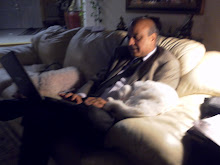In my practice I have come across two women who could not conceive for a very long time until, giving up all hopes, they adopted a baby, and lo and behold, within months found themselves pregnant.
The immediate explanation that comes to mind is that taking care of a baby aroused their maternal instincts and changed their hormonal status and made them more pliable to conceive.
I have often wondered whether it is not such obsessive self doubt about one's ability to control hostile impulses towards one's children that lies behind so many women's inability to conceive. This factor also may be present in those men who never venture into parenthood or at least postpone it till late in life.
I wondered too if such obsessive doubts about being a good parent does not lie behind Post Partum Depression. Here of course the baby is one's own and already born, nevertheless, the fear that one could harm it prevents one from taking up the role of motherhood. The psychodynamics of post partum depression is, of course, more complex and the factor of sacrificing one's child to one's own mother - here one is reminded of the Hindu practice of sacrificing one's child to Kali, the mother goddess, for propriation and prosperity- for getting something even more precious in return, comes in as well. Nevertheless the fear that one may harm one's child lies behind post-partum depression too. The depression is triggered by unconscious defense mechanism to put a lid upon the impulse to harm.
The immediate explanation that comes to mind is that taking care of a baby aroused their maternal instincts and changed their hormonal status and made them more pliable to conceive.
But there was something else, at least in one of them for sure, that raised questions in my mind whether in some women psychological, and not biological, factors do not play more important role as to why they cannot conceive.
The person whose case I am describing had been infertile all her life, and had adopted a new born, her nephew, in early forties, and after doing so, had become pregnant in matter of months.
Observing her I sensed that she had not conceived all her life because she greatly doubted her ability to be a mother. She grew up in a very stressful household where both parents suffered from mental illnesses. This factor though spurred her to become a successful show woman, it, at the same time, implanted self doubts as to her ability to be emotionally available to others, other than as a performer on stage. She feared she will be detached from her child, will not be able to give emotional warmth, will not develop tender bonds, and may actually hurt it. She had many traits of obsessional neurosis.
None of these fears proved to be true with her adoptive child. Perhaps because she did not feel any special obligation to be the perfect mother with someone who was not biologically hers and in whose case she felt she was doing a favor to someone else by taking care of him.
I have often wondered whether it is not such obsessive self doubt about one's ability to control hostile impulses towards one's children that lies behind so many women's inability to conceive. This factor also may be present in those men who never venture into parenthood or at least postpone it till late in life.
Only when they adopt a child and find how joyful parenthood is and that the thought of hurting the child is hardly present when interacting with the baby, and how happy the baby is from the attention and love it is receiving, that many women become fertile and conceive a child.
In olden days people lived in extended families or at least close knit communities and girls grew up taking care of relatives and friends children. This melted away their exaggerated fear of their destructiveness towards their helpless baby. It should not surprise in past centuries infertility was rare.
I wondered too if such obsessive doubts about being a good parent does not lie behind Post Partum Depression. Here of course the baby is one's own and already born, nevertheless, the fear that one could harm it prevents one from taking up the role of motherhood. The psychodynamics of post partum depression is, of course, more complex and the factor of sacrificing one's child to one's own mother - here one is reminded of the Hindu practice of sacrificing one's child to Kali, the mother goddess, for propriation and prosperity- for getting something even more precious in return, comes in as well. Nevertheless the fear that one may harm one's child lies behind post-partum depression too. The depression is triggered by unconscious defense mechanism to put a lid upon the impulse to harm.

This comment has been removed by a blog administrator.
ReplyDelete